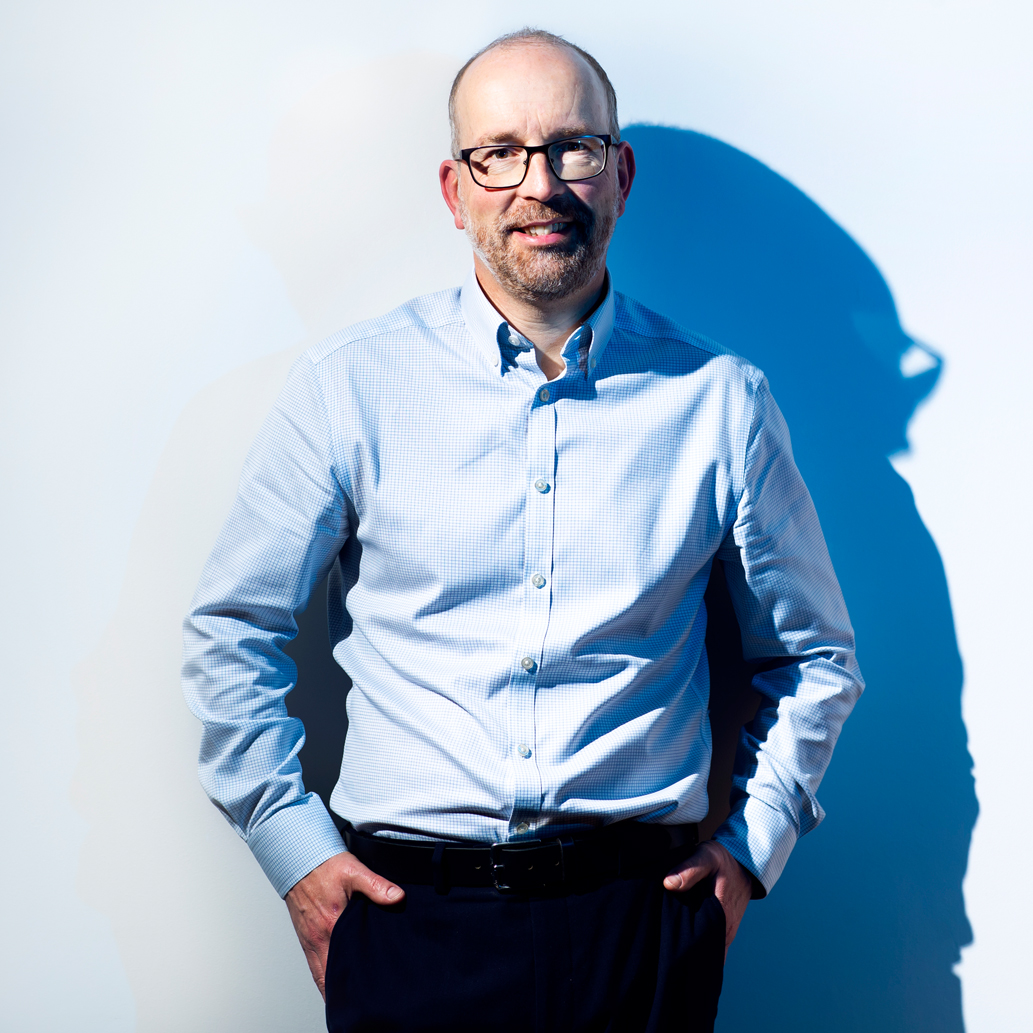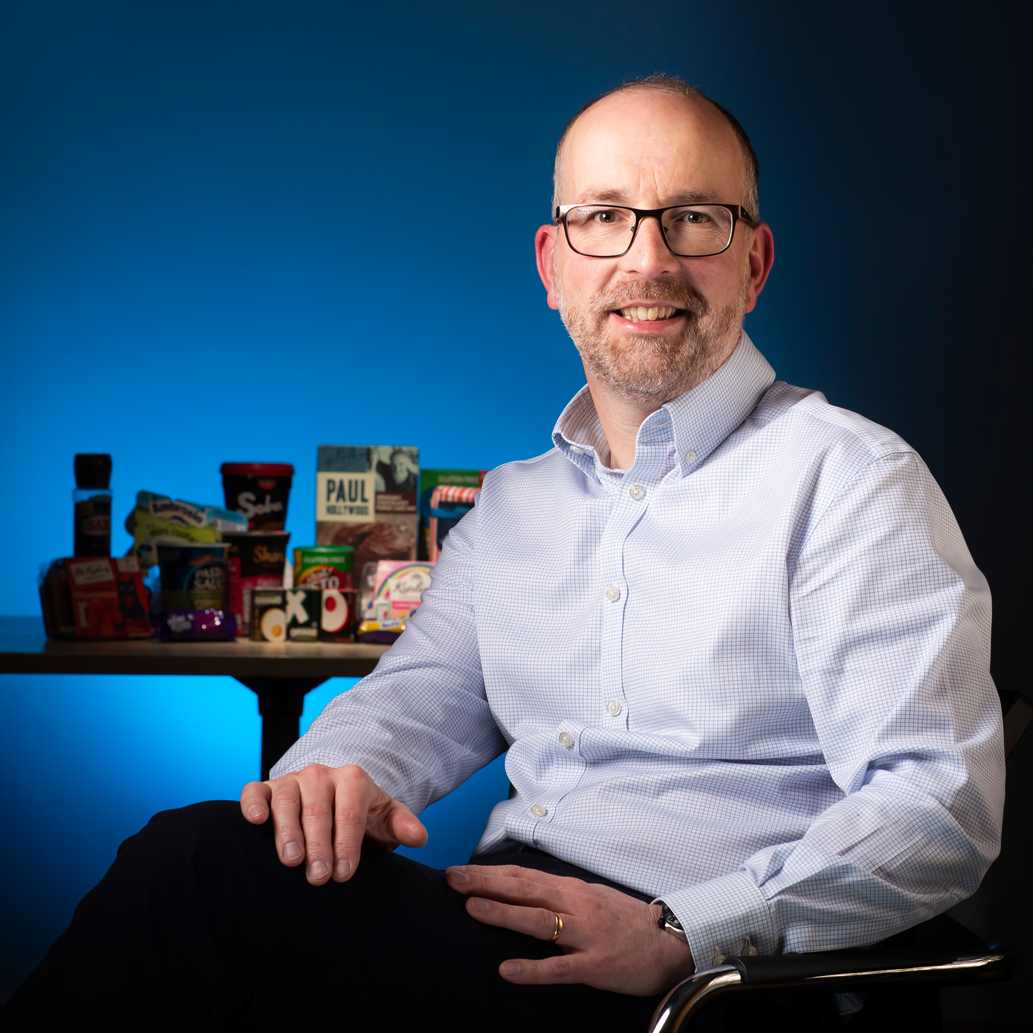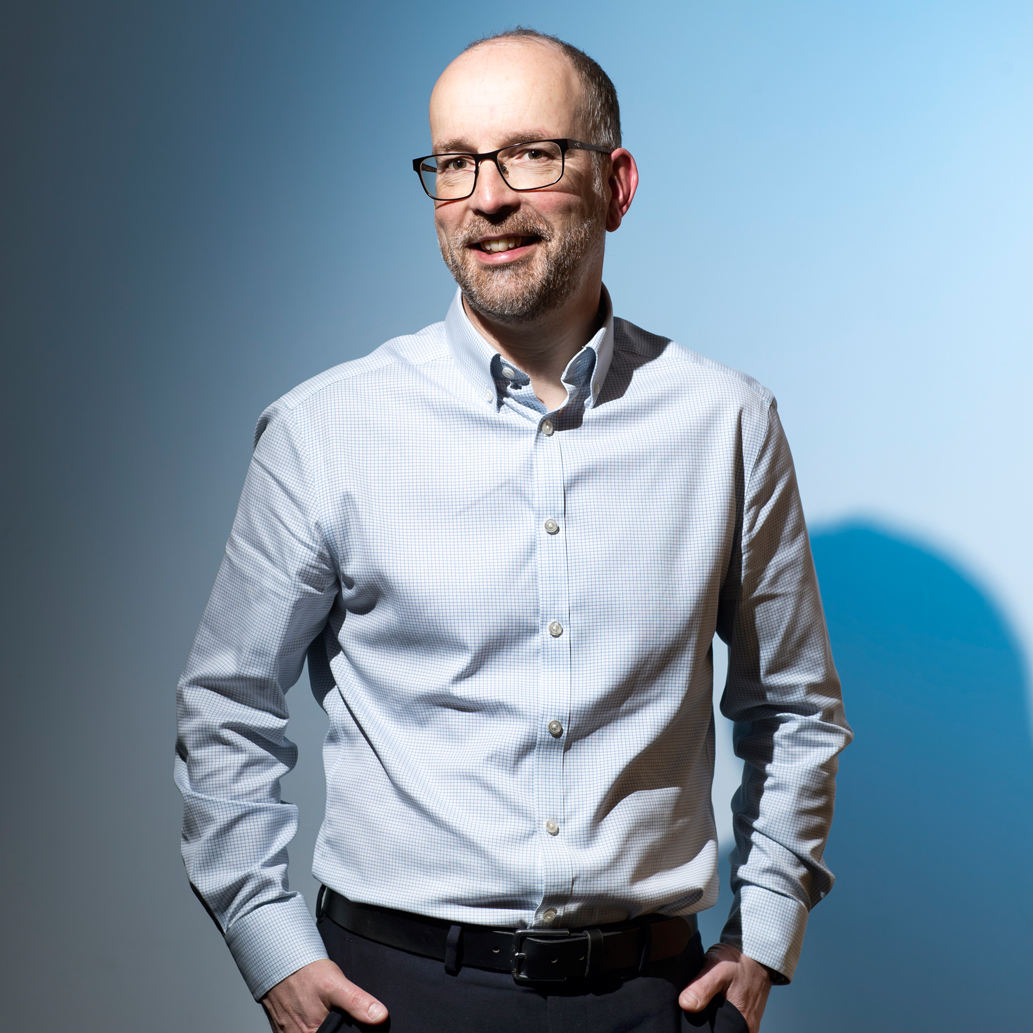David, tell us about your early life and how you found yourself on a HR career path?
After completing my A levels, I joined the Sainsbury’s management trainee programme and was fortunate enough to be offered the opportunity to study, while working, for a Retail Marketing degree. I will always value the learning and development opportunities I had available to me at Sainsbury’s – it was a business with plenty of scope to progress and one which I was really fond of. After several years in stores I decided to apply internally for a role as a Training Officer in Coventry, which appealed to me because of the people development aspect. From here, after some restructure and change in the business, I was offered a position in Leeds as a District Training Manager for the newly-established northern area. I enjoyed the role and the additional responsibility, so was pleased when I was asked to step up again to cover my boss as District Personnel Manager, when she was seconded to another position. So during my time at Sainsbury’s, I was really fortunate to have had some great exposure to a number of different roles, and I began to feel drawn to a more generalist HR role. I decided it was time for a change after ten years as I really wanted to experience a different type of environment and sector. I had no fixed view about the type of business I would move to, but I knew the characteristics I wanted in a company and was open-minded. I joined Granada, which went on to become Granada Compass – and there I met John Stephens, who was HR Director for Little Chef and Travelodge – and he really had an impact on my career. I think he saw in me somebody that was ambitious, eager to learn and pragmatic, which was just as well, because compared to Sainsbury’s, Granada was like the Wild West, very commercially-focused and often ruthless. So, although it was a big culture shock, I have no regrets as it exposed me to every possible aspect of HR, fast and furiously. It was the late 1990s with New Labour in power, a whole raft of new employment legislation, in a hectic full-on environment. It was tough going and exactly what I needed to stretch me and increase my skillset. Granada had just acquired Little Chef from rival Forte, which was quite a bruising experience, and I was promoted after six months to Regional HR Manager for the North and again, after two years, to a Training and Brand Standards role. I always thought that an acquisition or merger was on the cards and, sure enough, Granada and Compass merged and the roadside restaurant business was consolidated. It was pretty cut and dry, with myself and colleagues rapidly made redundant… it was an experience I’ll never forget. I had a young family and the paint was barely dry on our new front door. But with Sainsbury’s and Granada on my CV, I was quickly offered a number of opportunities – I really hadn’t appreciated how marketable I had become. I decided to join Cereal Partners, a division of Nestlé, in a Management Development role, which later became Head of L&D. It was a rational choice for somebody looking for stability after the cut-and-thrust of Granada. I was involved in some really interesting HR initiatives during my time there, but after less than two years I knew I needed to move on to a broader and more dynamic HR role.

Presumably, you could easily have seen your young family grow up and stayed at a Blue Chip like Nestlé.
I know, it was a very well-run business and a lovely environment, but I realised I was at my best in edgy and unpredictable situations, and I missed that. I was ambitious and really felt I needed to find a business where I could make an impact and bring change. I came across an opening at Renault – which had just entered into a strategic alliance with Nissan – and they were bringing together the two back offices. I ran the HR for the sales, marketing, back office and commercial teams throughout the UK. I really enjoyed working in the motor industry and being part of an international business, but any further career opportunities were in the European headquarters in Paris and, together with my wife, we had decided not to relocate our family again, although I really wanted to progress. So, I took some time to really think about my next move, and although I had gained some really useful experience, I decided that the sector I really felt most satisfied within was food and retail.

Tell us about your move to Premier Foods.
In 2007, I was approached about a position at Premier Foods as Group HR Manager. I knew the brands of course, but didn’t know much about the business, although interestingly some people did warn me against taking the role. For me though, it was slap bang in the market that I wanted to re-join and besides, there were some interesting developments. Premier Foods had just acquired RHM and Campbell’s and I came in at the point where the business was consolidating its offices into the HQ in St Albans. This was the beginning of an ambition to create the biggest food company in the UK and I felt it was a challenge too good not to take up. Plus, there were some great brands in the group and this was a really competitive British-owned business, so it ticked a lot of boxes for me. For the first few years, my work involved helping to bring the businesses together, so a good deal of structural and organisational design work and also some really complex cultural alignment. Campbell’s was originally an American-owned business, and apart from a common language, there is not much the UK has in common with the US in the workplace. Meanwhile, RHM was a big British company and then there was Premier Foods, which was a smaller, ex-private equity business. So all in all, a crash course in cultural cohesion and an opportunity for modernisation. There was also the review and planning of the many routine HR practices, which were straightforward on the surface, but proved complicated to achieve, such as agreeing the grading structure. Each was different in Campbell’s and RHM, and Premier Foods didn’t have one. It was a pretty lean structure, and I was reporting to the Group HR Director at the time. Fast-forward two years, and it was apparent that the business was facing a number of challenges, many of which came about from the sheer scale of the operations and complicated structure. So the HR agenda for the following three years was predominantly around restructure, reorganisation and streamlining our brands. There were plenty of tussles with unions and huge amounts of TUPE work for the HR team, on a scale that I had never encountered. It required a great deal of resilience from us, but it was a very fulfilling time.

It was the first time in your career that you were dealing with cuts and consolidation on this scale, as opposed to growth.
Yes and travelling in reverse is so much harder, because you don’t gain momentum and positive gains can hardly be celebrated. I don’t believe anyone enters a career in HR to make cuts, so it was a very testing time and emotional at points. Working for Granada taught me about resilience and determination though, so when times are tough, you learn a lot about yourself and your team. There were a couple of times I can recall where I felt I’d gone as far as I could, but the reason I stuck with it is because I’m passionate and loyal to the business and I wanted to do the right thing for my team and wider colleagues. I also knew that despite the current situation, at the core was a fantastic business with great brands and a wonderful group of people, which could be realised if we formed the right structure for the business. That’s what kept me going – and it is well-documented that, at its worst, there was a risk the business could go under. It was only when we had a new CEO in Gavin Darby that, in my opinion, the business really started to turn the corner.
![]()
What were the signs that the business was beginning to show green shoots of recovery?
It was 2014 – we had our new CEO on board – and as a senior leadership team, we began urgently addressing the big agenda points – for example; finding a better arrangement with the pension trustees for the pension deficit, refinancing the business and setting a plan and strategy for Hovis. Once these three things were stabilised, from an HR point of view, we had the green light to start investing in skills and systems. We began to build momentum and people started to feel that they were being invested in. You could feel the sun come out from behind the clouds, it was the first signs that the business was turning around. With Gavin’s leadership and the people that he started to recruit around him, it suddenly became easier to attract talent into the organisation, which resulted in positive changes to morale and employee engagement. I was now convinced we were on the road back to recovery. I then received a call one weekend from Gavin to say that he wanted to restructure the HR team, and that pivotal to this was the appointment of a new Group HR Director. It was an executive level position and, after a rigorous and proper process, I was appointed in July 2014. In 2017, this was further expanded and I now look after Communications as well as HR for the business.
Your first director-level post, what were the key differences and challenges you faced?
Firstly, there was no incumbent, so there was no handover for me in taking up this role and, where my previous post was working for other members of the executive team, now they were my peers. Plus, I was working directly with a very experienced CEO, which was different to managing just functional HR-related processes, and I was overseeing a much bigger and more diverse team, right across the UK. Also, as the business is a plc., there is the remuneration committee to consider. When you have this, the Chair relies on the HR Director and a good deal of responsibility sits on your shoulders. I had just three months between appointment and our management conference to land a new people strategy. I had a small window of opportunity to gain backing from my new peers and the CEO and set out my stall for running the function going forward. Feedback was swift and emphatic, and I had the green light to come up with a formal, three-year HR strategy. We purposely ran a business-wide conference called Accelerating Growth in September 2014, starting with the people agenda as a mark of our turnaround. We decided to go for some signature wins that I knew the business had long desired, on the basis that if we could land those, colleagues would believe that this was a business serious about its people, and that wanted to make a change. We announced a series of initiatives and programmes relating to people that were so well received that the entire audience broke into spontaneous applause. It wasn’t just because it was the appropriate thing to do; it was symbolic of an organisation that was prepared to change. The halo effect is so important.
With the business stabilised and the HR strategy given the green light, what was the business plan, and how were you preparing from an HR perspective?
Once stabilised, the first objective was to deliver consistent profit growth year-on-year; we aimed to generate enough cash so that we could reduce our debt, invest in our people and our brands, and grow through new product development. One of the key steps we took in the early days was to initiate a full colleague survey – we had run management surveys in the past, but they were relatively light touch. We thought we knew what the results would suggest and we had, up until that point, no real benchmark to compare ourselves with competitor employers. So, we ran our first full survey in 2013, with Willis Towers Watson, and we were disappointed – but not surprised – with the results. We used this as a catalyst to make a case for developing the people strategy, increasing our investment in people, and this built up momentum and enabled us to create our company values, which still hold firm today. Subsequently, we’ve run colleague surveys every couple of years and achieved a very strong track record of improvement year-onyear, and that’s partly because we act quickly and decisively to rectify any issues thrown up.
It's often the staple basics that are forgotten and these need to be stable and trustworthy, and also contemporary and competitive.
It took a change of leadership to shake the business up and bring the people agenda to the forefront. We are beginning to catch up now, for example to supplement our SAP-enabled HR system, we have adopted the full suite of Success Factors. We decided four years ago that if we were serious about supporting a successful people strategy, that was fully-embedded and integrated into everybody’s day-to-day processes, we needed an HR system that was up-to-the-task. Implementation was the more straightforward bit, although some of my team would disagree. The hard task was to have people fully-embrace managing through that change, and developing. As with all change, that has been a challenge, but I go back to the point about persistence; if you believe it’s the right thing to do and you’re not on your own, you can keep pushing. So, we’re now at the point where there is light at the end of the tunnel. I often think that if anyone who worked here five years ago came back, they would not recognise the place, such has been the progress we have made on the people agenda.
There is the ultra-competitiveness in the sector, and all the while, you have to maintain business ROI, profits and growth to shareholders. The pressure couldn't be greater.
We couldn’t have predicted some of the changes which have come about in the grocery retail space. Our customers, for example; Tesco, Sainsbury’s, Morrisons and Asda, are feeling the competition from one another and from the rise of discounter stores. In a fast-paced market where the competitor landscape is ever-changing, from an HR perspective, it means that when we’re recruiting or investing in people development, we must remember the importance of diversity of thought. It is vital to have a mix of inward and outward perspectives throughout the business to help us keep up with changes that are afoot and to modernise our brands.
Of course, your consumers are also potential employees, so impressions and reputations count in the war for talent. How does the business and the sector as a whole fair in the talent attraction stakes?
We have a successful programme of presenting to schools and talking to local communities, promoting Premier Foods as an employer and, as a brand, whilst also representing the entire food and drinks sector. I’m passionate about working with industry partners to promote the food industry as somewhere you can develop a career, so this is a key part of my HR strategy. Sometimes our sector – and in particular working in a factory – can be portrayed as not having the glamour and dynamism of other sectors. So, we have to play a big part in going out and talking to; students, teachers, career advisors and even parents about the huge variety of opportunities that are in the food and drinks industry. When you’re busy, it’s easy to overlook these things, but we’re storing up more problems in the years to come if we do nothing. The signs are positive, I’m proud to have a very successful grassroots scheme where we’ve attracted some very bright and diversely-skilled apprentices and graduates. We also have to understand the trends in work and careers. We’re a business that has retained people for decades, often having multi-generational families working for us – so when colleagues do leave, we have to look at the reasons why. We have to accept that today’s graduates, for example, are different to my generation, and we are beginning to think more strategically about what we need to be doing to retain, develop and stretch them.
David, you have certainly displayed some stoic optimism over your career, what has kept you going?
Well, as a West Brom football fan, stoic optimism is in the DNA. In my experience, nothing worthwhile comes easily. I think disruption can be good for a business, and it’s how you react to it that is the deciding factor between success and failure. But consistency and stability too are important elements of business. Flexible, adaptable and resilient are the three core values in business today, undoubtedly, and I think most organisations desire that, but it is a difficult balance to achieve. Even when things might be stable internally, the external environment can throw up challenges. Brexit has been a term full of ambiguity for business and, no matter what the outcome, there are testing times ahead for sure. What next for the business? We will continue to invest in our brands and grow the business in a more organic way. Continue to pay our debt down to a much more manageable level and, absolutely central, is our forward capability. So, a continued focus on talent and skills across the business – you would expect me to say that as Group HR Director – but the transformation in our business over the past five years, as opposed to the previous five, is such a compelling story. The difference has been leadership and the highly-capable, talented and resourceful individuals at all levels of the organisation. And I’m sure it won’t stop there – we have plenty to achieve in the years ahead and that’s what keeps me excited about this business.












